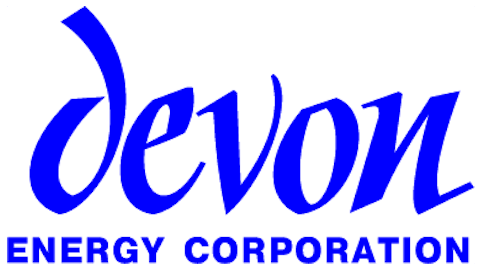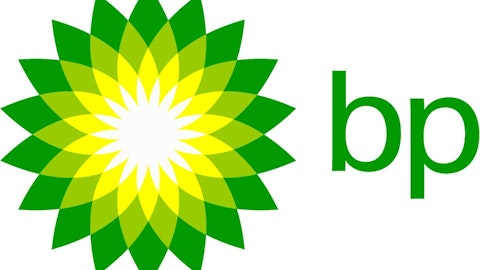While total production rose 1.1% to 2.67 million daily barrels of oil-equivalent production, the growth was produced by natural gas, which grew 5.8%, compared with liquids, which declined 1.1%. Impressive refining margins helped the downstream business to move from a $538 million loss a year ago to downstream earnings for the fourth quarter of $925 million. Exploration and production is still the most important businesses for the company, but solid fourth quarter performances in refining and chemicals added to the near record profits at Chevron.
Other Energy Players
At Exxon Mobil Corporation (NYSE:XOM), net income jumped almost 6% to $9.95 billion, despite a decline in revenue for the fourth quarter at $115.2 billion. The world’s largest publicly traded oil company earned $2.20 a share (compared with a $1.99 a share estimate), while sales came in just above expectations. Oil-equivalent production declined by over 5% to 4.29 million barrels per day and upstream earnings declined $1.1 billion to $7.8 billion on lower price realization. On the other hand, downstream earnings more than quadrupled to $1.8 billion.
Looking ahead, ExxonMobil recently signed an agreement with Russian partner Rosneft that will give the company exploration access to 150 million additional acres in the Russian Arctic. This bodes well for Exxon’s future, as ExxonMobil can now start developing the area, called Point Thomson, containing several gas fields that ExxonMobil has owned for decades. Exxon is a promising long-term growth stock in oil and gas.
ConocoPhillips (NYSE:COP) fourth-quarter 2012 earnings came in at $1.4 billion, or $1.16 per share, compared to earnings of $3.4 billion, or $2.56 per share in the same quarter of the previous year. Fourth-quarter 2011 reported earnings included downstream results before the separation of Phillips 66 on April 30, 2012.
While the company’s full year 2012 results were modest, several promising projects remain on track. The company’s assets in the Eagle Ford and Bakken shale plays in the U.S. look promising, and the company is ramping up production elsewhere. ConocoPhillips is drilling at the Coronado and Shenandoah, and exploring deepwater regions of the Gulf of Mexico. ConocoPhillips controls 1.9 million acres in the Gulf of Mexico. Other areas of deepwater exploration include Malaysia, Indonesia, and Bangladesh. The company is also working on a coal gas project in Australia. Though ConocoPhillips remains highly vulnerable to oil and gas prices along with the other energy players, it appears to be a promising growth play based on its global footprint and strong asset base.
Valero Energy Corporation (NYSE:VLO) announced a very strong fourth quarter, with earnings growing to $1.82 per share from $0.08 per share, well ahead of the consensus estimate. This was achieved by replacing all imported crude oil with domestic crude at the refineries on the Gulf Coast and in Memphis. The company expects increasing availability of U.S. and Canadian crude and will attempt to procure higher volumes in the future.
In addition to strong fourth quarter earnings, Valero’s stock has seen positive momentum from analyst upgrades. Analysts at Macquarie recently upgraded Valero from a neutral to outperform with a price target of $53.00. Analysts at Deutsche Bank placed a hold rating on the stock with a price target on Valero shares at $51.00, up from $40.00. Valero reported revenue of $34.70 million for the fourth quarter of 2012, beating the consensus estimate of $31.01 million. Investors looking at the oil and gas sector should consider Valero as a promising long-term growth stock.
Conclusion
Chevron’s production outlook is among the best in its peer group, with significant start-ups during recent months that include the Usan project in Nigeria as well as the Caesar/Tonga project in the deepwater Gulf of Mexico. Despite this, I believe Chevron is fairly valued at current price levels.
The article Should You Buy This Integrated Energy Player? originally appeared on Fool.com and is written by Jordo Bivona.
Copyright © 1995 – 2013 The Motley Fool, LLC. All rights reserved. The Motley Fool has a disclosure policy.





